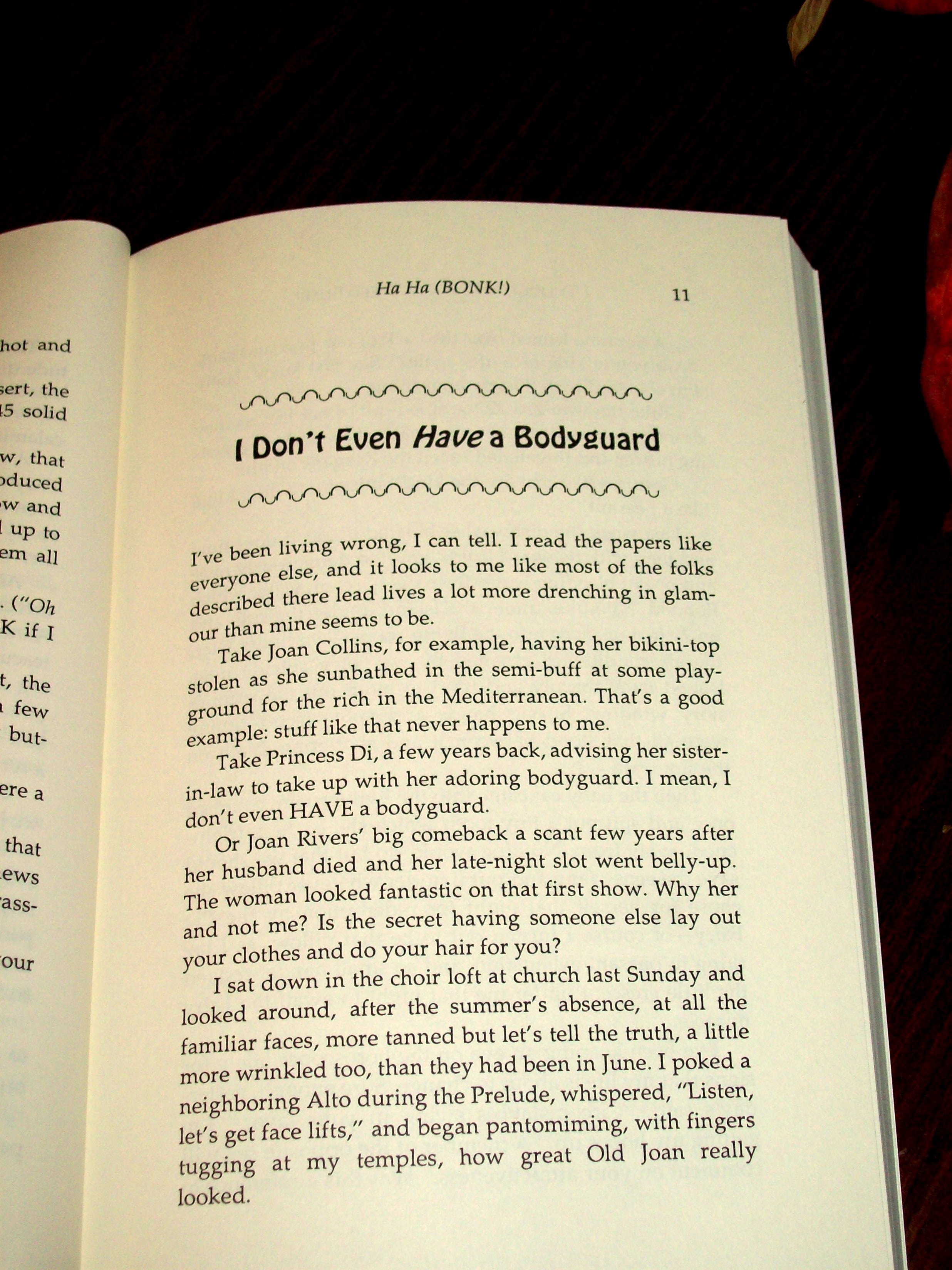When in Doubt Cut it Out
 The day my piece about how to write the college essay appeared I heard from a young woman in Canada who was wondering if I could take a look at what she had written for her first-person essay. Hers was 80 words longer than the 500-word limit she said. Could I see what I thought of it and maybe help her figure out what to cut?"Sure!" I said. I'm 30 years a columnist! I probably can't write more than five or six hundred words together anymore. I told her I'd love to read her essay, which turned out to be so charming, I almost couldn't see what to cut.So instead I gave her a piece of advice I've never given myself, which was to go through the piece and take out just about every adverb she came across. In fact I went through it and did that, then emailed it back so she could see what she thought.I’m not sure she liked the new version but I sure did. To me it seemed so much stronger and more, I don’t know.. authoritative without the adverbs. It's a paradox: I mean you think these modifiers are really going to light up your writing but instead they make you sound like you’re trying to coerce a certain response from your readers, or put something over on them, or God forbid sell them something.Today I’ve been mentally composing something about this past weekend when our littlest grandchild, under our care for a day and a night, slowly sickened. I could write “He was very cold, he said,” or I could simply write “He was cold, he said.” Just setting this down helps me see that the second sentence is probbaly the more effective one – and not just because it's shorter. Sooooo what if I apply this rule to my own writing? Flipping through the first book I ever did, I came upon this description of the day my appliances died. Here’s how it looks as published:
The day my piece about how to write the college essay appeared I heard from a young woman in Canada who was wondering if I could take a look at what she had written for her first-person essay. Hers was 80 words longer than the 500-word limit she said. Could I see what I thought of it and maybe help her figure out what to cut?"Sure!" I said. I'm 30 years a columnist! I probably can't write more than five or six hundred words together anymore. I told her I'd love to read her essay, which turned out to be so charming, I almost couldn't see what to cut.So instead I gave her a piece of advice I've never given myself, which was to go through the piece and take out just about every adverb she came across. In fact I went through it and did that, then emailed it back so she could see what she thought.I’m not sure she liked the new version but I sure did. To me it seemed so much stronger and more, I don’t know.. authoritative without the adverbs. It's a paradox: I mean you think these modifiers are really going to light up your writing but instead they make you sound like you’re trying to coerce a certain response from your readers, or put something over on them, or God forbid sell them something.Today I’ve been mentally composing something about this past weekend when our littlest grandchild, under our care for a day and a night, slowly sickened. I could write “He was very cold, he said,” or I could simply write “He was cold, he said.” Just setting this down helps me see that the second sentence is probbaly the more effective one – and not just because it's shorter. Sooooo what if I apply this rule to my own writing? Flipping through the first book I ever did, I came upon this description of the day my appliances died. Here’s how it looks as published:
Last week the dishwasher, bloated up with its weird fluids, suddenly chuffed dangerously and began bleeding water from every seam; water which flooded, Nile-like, under the island, under the rug, and on 20 feet or more into the living room. Two hours later, the air conditioner groaned by way of a suicide note, leaned back sharply and tried to jump out the second-story window. Strong hands and split-second timing were all that stood between it and shattering death on the sidewalk.
And here it is without most of the modifiers:
Last week, bloated with the usual fluids, our dishwasher suddenly chuffed and began bleeding a stream of water that flooded both floor and rug and snaked all the way to the living room. Two hours later, the air conditioner groaned by way of a suicide note, leaned back and tried jumping out the second-story window. Strong hands and split-second timing were all that stood between it and death on the sidewalk.
The second one really is better! Anyway it's far less wordy.Which means that Strunk & White were right in saying “When In Doubt Cut it Out” and that old Shot Myself-in-the-Face Hemingway knew what he was doing when he took that boning knife out and pared, pared, pared away at his sentences.I read back over this and see that I too have gone over 500 words, which I hate to do to you guys, suffering already with eyestrain. So hey thanks for wading through this. And thank YOU Emily from Canada for helping me re-learn a valuable lesson. :-)(A page from the chapter of my first book here. God it was fun to publish these collections! )